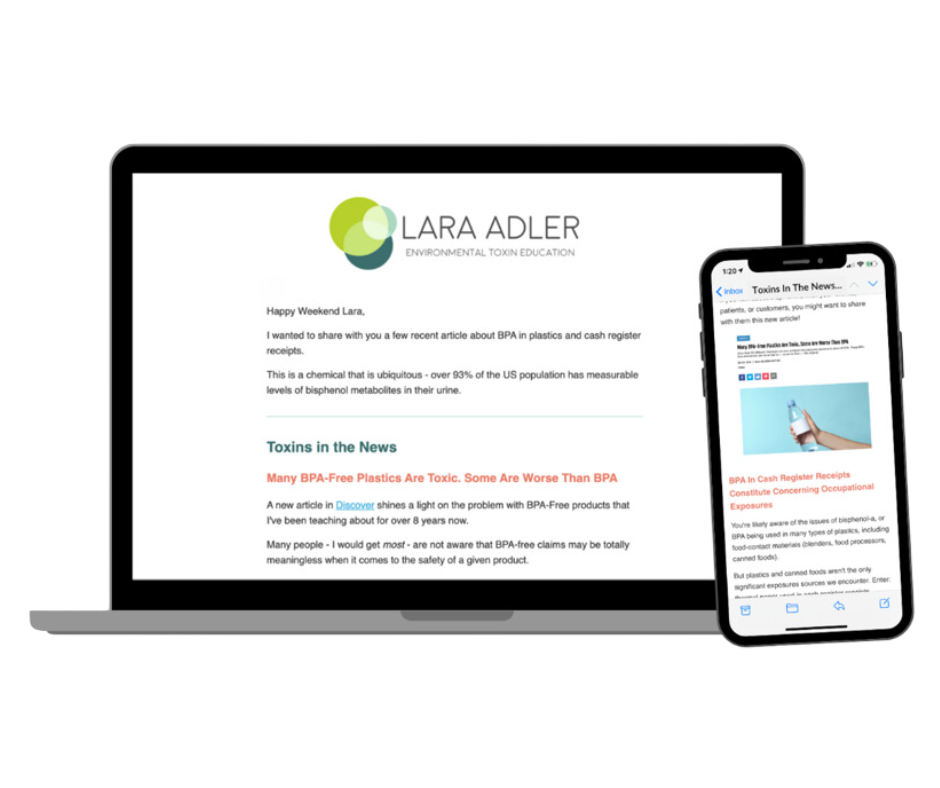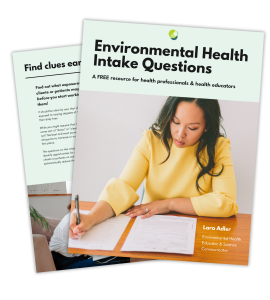Plastics and PFAS are two of the biggest health threats of our time...
The kitchen may feel like the healthiest room in the house, but it’s also one of the most common sources of everyday chemical exposures – from plastic storage containers and food packaging to nonstick cookware and gas stoves – from phthalates and bisphenols, to PFAS and microplastics.
Decades of research link these exposures to hormone disruption, immune changes, and increased risk for chronic disease. And yet, most health professionals have little training in how to identify them, the potential health implications, or how to help clients make meaningful, realistic changes.
Typically, practitioners feel stuck between two extremes: ignoring these exposures altogether or repeating simplistic advice like “just avoid plastic.” When your clients or patients are inundated with daily news stories about the dangers of non-stick cookware, plastic cutting boards, along with alarmist social media posts, fear-driven marketing, it’s no wonder they’re overwhelmed and confused.
This module, part of the larger Talking Toxins course, walks you through each of the core exposure points to these chemicals in our kitchen, their associated health risks, and the tools and language to help your clients reduce exposure without requiring a total kitchen overhaul.

Exposure to plastics and microplastics have wide-ranging health impacts
Plastics and PFAS are embedded in nearly every aspect of modern life, from the cutting boards we prep food on to the pans we cook with and the containers that store leftovers. While convenient, these materials can introduce chemicals linked with hormone disruption, immune changes, cardiovascular impacts, and other chronic health concerns.
Module 2 of Talking Toxins gives you a clear, evidence-based understanding of these exposures, with a focus on what shows up most often in the kitchen. You’ll learn how plastics and PFAS migrate into food and air, what factors increase chemical migration, and how to distinguish between risks that matter and those that are overstated.
We’ll also cover practical, accessible swaps and how to talk about these exposures without fearmongering, shaming, or overwhelm. For practitioners who work with food, cooking, or household routines, this module expands your ability to guide healthier kitchen choices and speak credibly about plastics, packaging, and PFAS exposures. If you want to move beyond surface-level advice and master how to talk credibly about plastics, packaging, and PFAS exposures, this module is for you!

Who this module is for
- Health Coaches
- nurses
- women's health experts
- nutritionists
- Health Educators
- fitness professionals
- naturopaths
- Occupational Therapists
- Health Bloggers
- Physicians
- midwives and doulas
- healthy living consultants
The kitchen is an easy entry point to quickly address everyday exposure
Most people get the plastics conversation wrong, oversimplifying the risks or missing the exposures that matter most. Module 2 of Talking Toxins gives you the practical, evidence-based tools to turn everyday cooking and food storage habits into meaningful opportunities for reducing risk.
If you talk about food with your clients
Module 2 is for you!
Module 2: From Plastics to PFAS
Understanding and Reducing Kitchen-Based Exposures
What We Cover:
Plastics, microplastics, and PFAS are some of the most common and most concerning chemicals in our daily routines.
In this 3-hour module, you’ll explore how plastics, packaging, cookware, and even the act of cooking itself can introduce chemicals into our bodies and homes. You’ll get a deep dive into the specific phthalates used in plastics, bisphenols, PFAS, and microplastics, and break down why ceramic-coated isn’t a good choice (and when it is!). Exposure risks from the kitchen are often overstated, understated, or outright dismissed. In Module 2, you’ll learn what the evidence says and how to relay this back to your clients or patients, in an informative, balanced, and accessible way.
Whether you’re a nurse, health coach, ND, MD, or educator, this module gives you the evidence, context, and offers your clients practical strategies for reducing exposure in realistic, accessible ways.

In This Module, You'll Learn How To:
Identify key chemical families commonly found in all kitchens
Explore plastics, PFAS, phthalates, and other chemicals present in cookware, storage containers, and even the air from cooking.
Evaluate cookware and storage materials with confidence
Compare the risks and benefits of plastics, silicone, stainless steel, ceramic-coated, aluminum, and nonstick surfaces.
Offer realistic, accessible swaps for clients
Recommend safer options that fit different budgets and lifestyles, reducing exposures without fear, guilt, or perfectionism.
Understand how and when chemicals are released into foods and air
Learn how heat, acidity, fat content, and product wear influence chemical migration and exposure risk, and which appliance heavily pollutes indoor air.
Navigate the shifting regulatory landscape
Understand current and emerging state and federal rules on PFAS and food contact materials.
Communicate about kitchen exposures with clarity and sensitivity
Frame guidance in culturally respectful, empowering ways so clients can make changes that feel doable and non-judgmental.

Module 2 Outline
Understanding and Reducing Kitchen-Based Exposures
- Introduction & What To Expect
- Why Start With The Kitchen?
- Plastics and Microplastics in Food Prep
- Cookware and Coatings
- Food Packaging and Processed Foods
- Gas Stoves and Indoor Air Pollution
- Best Practices for Talking About Kitchen Exposures
This Module Includes:
7 Video Lessons
Each lesson is delivered in a narrated video format, perfect for visual learners.
Downloadable Transcripts, Audio Files, & Slides
Learn faster by reading? Skip the videos and go straight to the transcripts, download the audio to listen on the go, and save the slide decks for easy reference.
Student Only Facebook Group
Get access to a community of health professionals where you can ask questions about safer products, best practices for talking toxins with your clients, and more!
Access To Ongoing Office Hours
Once a month, ask Lara any accumulated questions about toxic exposures via Zoom (even long after you’ve finished the module)
2-Year Access To Course & Any Updates
Your enrollment includes 2 years of access to all course content and updates, and you get ongoing access to Lara directly through Facebook & Office Hours
Practitioner Handouts & Resources
Get practical tools to help you speak confidently about plastics, microplastics, and safer cookware, spot misleading marketing in cokware, and talk about gas stove concerns
In each Talking Toxins module, you'll get resources, support, and an evidence-based education

Practitioner resources
Get 3 practical downloadable resources to support your learning, including a quick reference guide on plastics, how to spot misleading marketing for cookware, and a gas stove pollution fact sheet – all designed to support your learning and your client work.
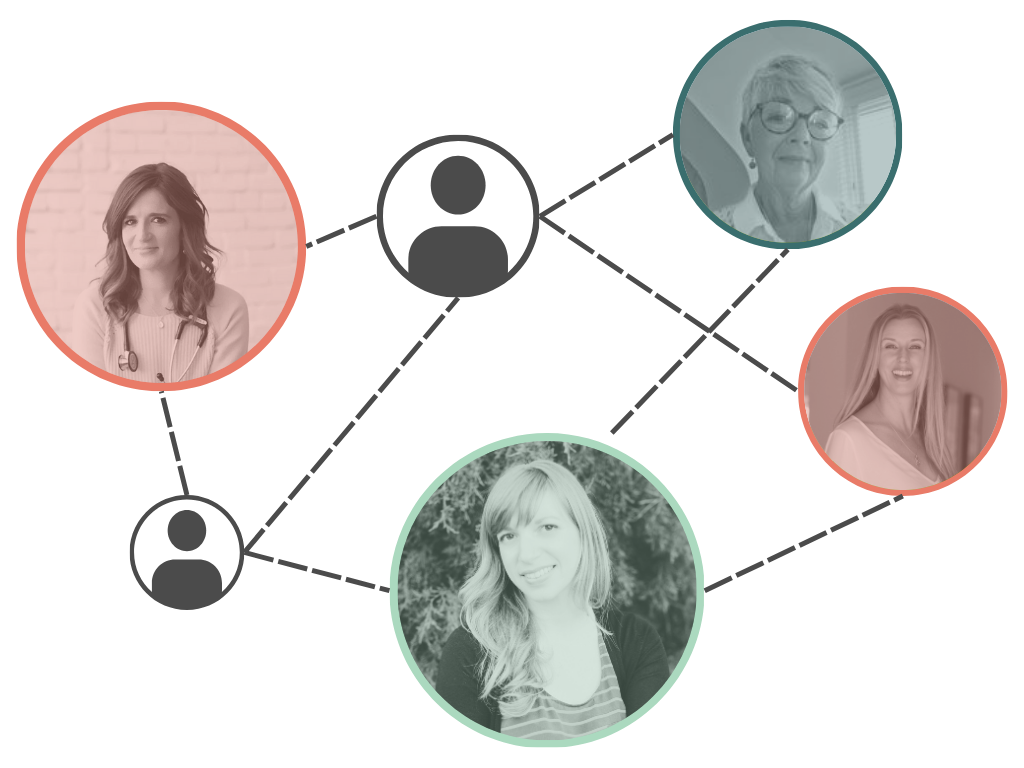
Self-paced, community supported
Move through the lessons and handouts at your own pace! Whether you enroll in just one module or the full Talking Toxins course, you’ll have direct access to me in our community Facebook group, as well as our Monthly Office Hours. Ask Lara any questions and engage with other students!
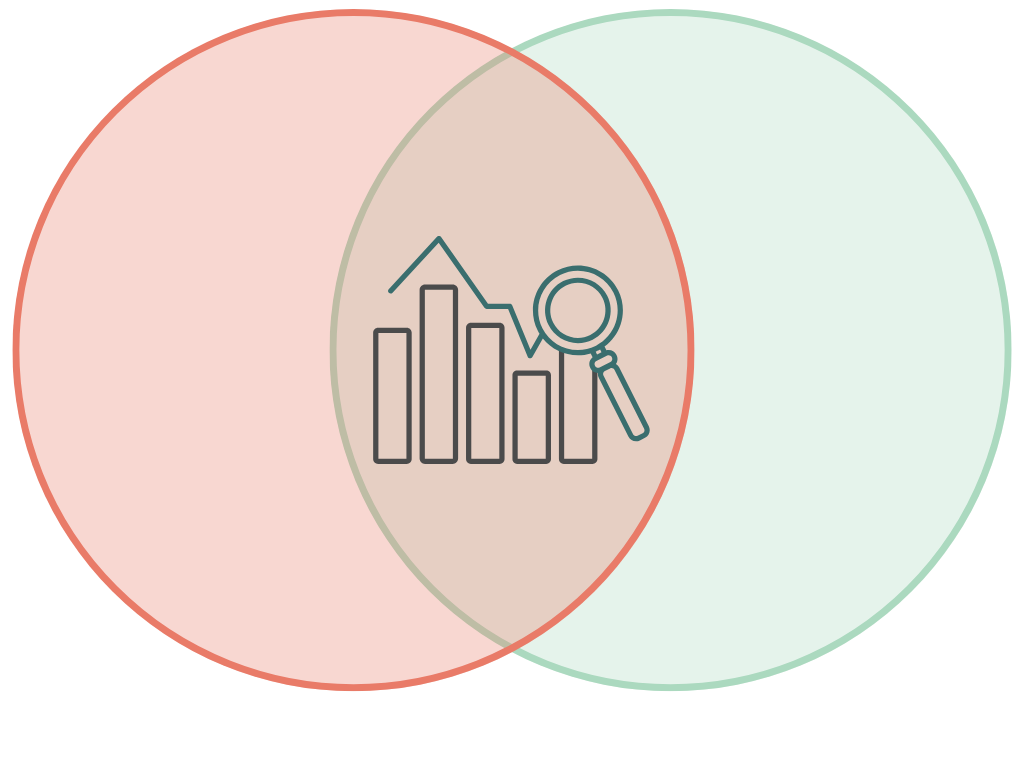
Balanced education
This course delivers balanced, evidence-based education rooted in peer-reviewed research. It dismantles common myths, clarifies what the science actually says, and helps practitioners avoid sensationalism or fear-mongering, so you can speak confidently, accurately, and responsibly about environmental exposures in your work.
Module 2 Practitioner Resources
I love a good handout! That’s why I’m including a series of practical, ready-to-use resources to help you apply what you’ll learn in Module 1. These resources are designed to make complex topics easier to explain and to help you be more credible, grounded, and science-savvy when talking toxins.

Gas Stove Pollution Fact Sheet
An evidence-backed overview of pollutants released from gas stoves, who is most at risk, and practical mitigation tips.
Kitchen Plastics Quick Reference
A practitioner resource on plastics in the kitchen, leaching risks, and what to do and not to do with plastics that are present.
Misleading Product Claims in Kitchenware
A review of the multiture of misleading marketing messages to quickly help you educate your clients or patients






Here’s what’s included with Module 2:
- 6 in-depth, self-paced video lessons, totaling ~3 hours
- Full transcripts, with references, for every lesson
- Downloadable slides & audio files
- 3 practical, downloadable practitioner resources
- Ongoing access to our student-only Facebook community
- Monthly Office Hours with Lara to get your questions anwered
- 2 full years of access to course materials
All for:
$290
Want the full picture? Upgrade to the complete Talking Toxins course!
Save $290, earn CE credits, and get exclusive resources you won’t find in the individual modules

Talking Toxins is a 6-module course that equips health professionals with the knowledge and tools to address the most common environmental exposures clients and patients face at home — along with practical, accessible ways to reduce them.
Across all six modules, you’ll learn to navigate this topic in a balanced, grounded, and evidence-based way, while avoiding the sensational, fear-based tone that overwhelms rather than educates.
With the full course, you'll get access to:
| Features | Individual Modules | The Full Course |
|---|---|---|
| Access to 1 Module | (All 6) | |
| Quiz, Certificate of Completion & CEU Credits | ||
| White-Labeled Handouts | ||
| Practitioner Resources | ||
|
Extended Practitioner Resource Kit (reference guides, client scripts, etc) |
||
| 2 Years of Access | ||
| Monthly Office Hours with Lara | ||
| Student-only Facebook Group | ||
| Save $290 vs Buying Modules Separately |
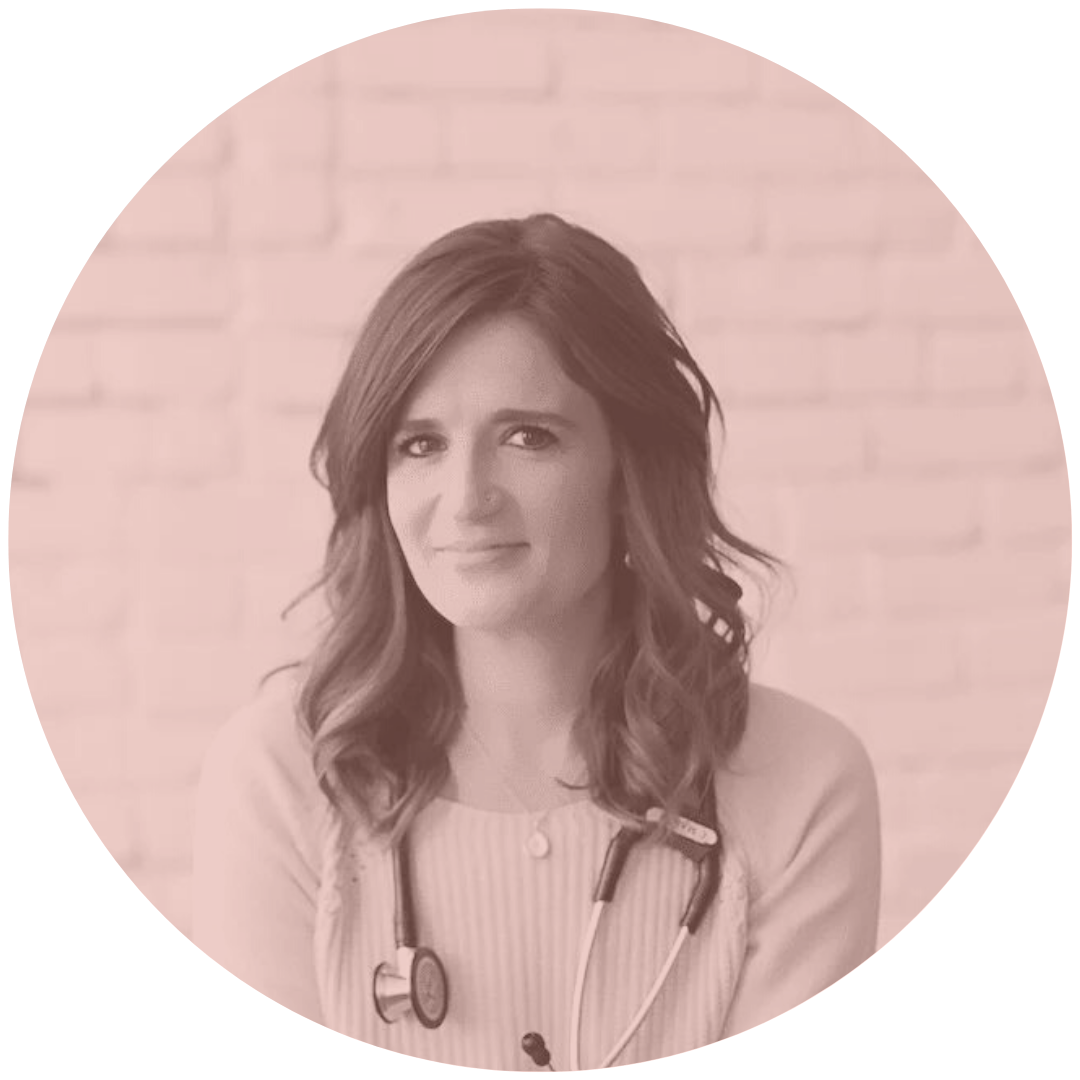


By enrolling in the Talking Toxins course, or it's individual modules, you are agreeing to our Terms & Conditions. If, after enrolling and reviewing the course materials you feel it’s not a good fit for you, simply send me an email within 48 hours of your purchase at [email protected], explaining what didn’t work for you, and a full refund will be offered. Additionally and in plain English, these terms simply state that you must honor your investment by not sharing any files, resources, information, or log-in credentials with anyone and that all course materials are protected by copyright and therefore non-stealable! That’s pretty fair! To read the full Terms & Conditions for your purchase, click HERE.

Hi, I’m Lara Adler
I’m an Environmental Health Educator and Science Communicator with over 14 years of experience helping health professionals and health-focused businesses understand the impact of environmental chemicals on chronic health conditions. My work bridges established and emerging research with practical, accessible strategies to minimize toxic exposures and build resilience against environmental challenges.
Combining environmental health education with business consulting, I’ve helped over 5,000 health professionals in more than 35 countries elevate their expertise, achieve better client outcomes, and become sought-after leaders in the growing field of environmental health.
I’m passionate about bringing balanced, and evidence-based perspectives to the environmental health conversation, and work to push back against sensationalized, fear-mongering content that harms the overall discussion.
Frequently Asked Questions
The Talking Toxins course, and each of it’s modules, is designed for health professionals or health educators, but you do not have to be one to benefit from what you’ll learn.
Most of my students are health professionals like: health coaches, nutritionists, nurses, NDs, MDs, DOs, occupational therapists, doula/midwives, etc.. I also have a lot of health educators, content creators and bloggers in my student pool.
A small number of my students are super motivated moms, or people on their own healing journey who are seeking ways to decrease their toxic load. If this is you, you’re welcome to join!
The Talking Toxins course, and each of it’s modules, is designed for health professionals or health educators, but you do not have to be one to benefit from what you’ll learn.
Most of my students are health professionals like: health coaches, nutritionists, nurses, NDs, MDs, DOs, occupational therapists, doula/midwives, etc.. I also have a lot of health educators, content creators and bloggers in my student pool.
A small number of my students are super motivated moms, or people on their own healing journey who are seeking ways to decrease their toxic load. If this is you, you’re welcome to join!
Individual modules of the Talking Toxins course do not offer continuing education credits. However, the full Talking Toxins course (ie, all 6 modules) is approved for 10 CEU hours from:
- The National Board for Health and Wellness Coaching (CEA-000123-1)
- The National Association of Nutrition Professionals
- The Health Coach Alliance
- The Association for Integrative Nutrition
We are always seeking new CEU opportunities – if you don’t see your certifying board listed, please reach out to me at contact @ laraadler.com
Yes. You can start with just 1 or 2 modules, and if you wish to upgrade to the full course with all the additional materials, and access to the quiz and CEU credits, just email my team at su*****@*******er.com and we’ll get you moved into the full program.
Each module varies in length, but fall between 90 minutes and 3 hours. Because this course is a self-paced you can move through it on your own time. Once enrolled, you will have 2 full years to complete it.
Nope. This is education. In fact, within Module 1 there’s a lesson covering all the reasons why Talking Toxins does not include detoxification protocols.
That said, by following along in each module of the course, you’ll learn how to identify and address the common environmental exposures your clients or patients may be getting, thereby lowering their body burden. The first, most important, and most overlooked step in detoxification is actually avoidance, which is exactly what you’ll learn inside this course.
Absolutely! Each lesson in this course is fully cited. The majority of the research referenced in this course is from public health institutions, academic institutions, and well-respected, peer-reviewed journals. Open source research is prioritized to make following the paper trail equitable and accessible to all.
YES! Low-income and BIPOC communities in the US and abroad often experience disproportionate exposures to environmental chemicals. These communities also often lack access to healthy food and green spaces and lack access to education around helping to minimize exposure and optimize health. This disparity is addressed in detail within Module 1 of the Talking Toxins course, because it’s an essential part of the conversation!
My goal in offering scholarship seats to this course is to help bring practical, and actionable education to those communities who need it most.
We offer 2 types of scholarships:
Community Work Scholarships are made available to applicants who are actively working with an organization, non-profit, or in a clinical setting that meaningfully and specifically focuses on serving low-income and/or BIPOC communities. Individuals who are able to demonstrate and verify their work in these spaces are granted full scholarship.
Equity Scholarships are intended for low-income and BIPOC individuals working in the health & wellness space who are seeking to expand their education around environmental health so they can better support current and/or future clients.
At the moment, we are making 12 Community Work scholarships available each year, and an unlimited number of Equity Scholarships!
If you feel that you meet the requirements for this scholarship, please click here to fill out the application.
Yup! If, after enrolling in Talking Toxins (or an individual module) and checking out the course materials, you decide it’s not a good fit for you, just email my team at co*****@*******er.com within 48 hours of your purchase and we’ll refund 100% of your money. After 48 hours, refunds are not offered.
If you have any questions I didn’t answer here, just drop me an email at contact @ laraadler.com and I’ll get back to you ASAP!

